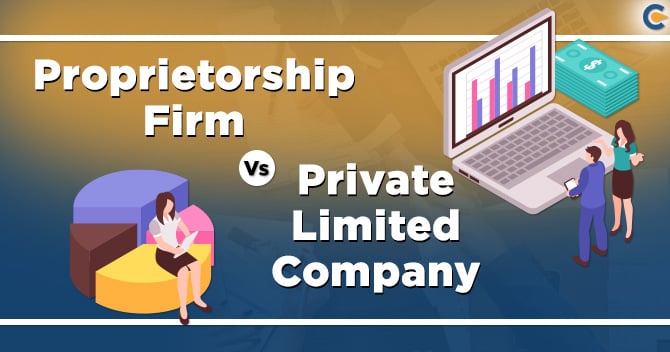Introduction of the concept of One Person Company in the Companies Act, 2013 has completely transformed the corporate laws in India. OPC Registration was a game-changer that resulted in acknowledgement of a completely new way of setting up a business. OPC registration has provided a platform for the sole proprietors to enter into a corporate sector.
In the topic, we will discuss what is OPC, OPC Registration, method of conversion of OPC into Public and Private Company and the entire process of conversion;
What is One Person Company?
One Person Company is a company having one person as to its members. The member of a company is a subscriber to its memorandum of association. So, a One Person Company is a company that has only one shareholder as its member. Generally, OPC registration is done when there is only one member or promoter for the business. In the early stages, Businessman prefers OPC registration instead of sole proprietorship business because of the several advantages that OPCs offer.
What are the Key Features of OPC Registration?
The key features One-person Company are-
- OPC registration – The registration of OPC is done as per the Companies Act 2013 and the Ministry of Corporate Affairs.
- OPC is distinct from its member – OPC is considered as a Separate Legal Entity.
- Liability of Members – The liability of the member is limited to the extent of their share capital.
- Criteria of Minimum and a Maximum number of member/members – Minimum 1 member and Maximum 2 member.
- Transferability – Transferable to 1 person only.
Eligibility Criteria for One Person Company Registration
- A person (Natural person) who is a resident of India in the preceding calendar year can apply for OPC registration.
Note – Resident means who stayed in India for 182 days in the preceding calendar year.
- A person cannot incorporate more than one OPC or be the nominee of more than one OPC.
- For OPC registration, the threshold limit of paid-up capital is Rs 50 lakh and the Average Annual turnover is Rs 2crore in immediately preceding financial year. The status of OPC is lost, if the OPC exceeds this threshold limit.
- 1 member can form an OPC.
- The rules of OPC registration, do not permit Non-Banking Financial institutions.
OPC Registration Process
Here is brief of One Person Company Registration Process –
1. For OPC registration it is required for the applicant to get a DSC (Digital Signature Certificate) issued by the Certifying Authority, As the authenticity of all the documents is ensured by the DSC.
2. Registration of OPC through RUN (Name Reservation)-
- RUN service shall be used for the name availability of the proposed company
- Once the name is approved, the SPICE Form shall be filed for Company i.e. (Incorporation of the OPC should be done within 20 days from the date of approval of RUN).
- In case the address of correspondence and registered office address is not the same, the company shall file form INC-22 within 30 days once form SPICE is registered and the company gets incorporated.
- Allotment of DIN (Director Identification Number).
- Application of PAN and TAN while doing OPC registration through SPICE form INC-32.
- Electronic MOA and AOA through SPICE form (INC-33 AND INC-34).
- A declaration in respect of incorporation by an advocate/CA/CWA/CS stating that all the legal requirements of this Act have duly complied. A declaration is given by the professionals involved in the OPC registration process.
- Consent of a nominee that he/she is willing to be a member of the one-person company.
Conversion Process of One-person company to Public or Private
Now in the topic, we are giving an in-depth on the conversion process of OPC into Private company and Public Company-
The conversion of One Person Company can be done either-
- Voluntarily or,
- Compulsory.
For Voluntary conversion, OPC shall meet the following criteria-
- At least 2 years must have completed since OPC registration.
- Application in Form INC-6.
- The limit of shareholders and Directors shall have to increase the requisite limit.
For Compulsory conversion, OPC shall meet the following criteria-
OPC has to convert itself into a private or public company compulsorily, If In case-
- The paid-up share capital of an OPC exceeds 50 lakh rupees or its average annual turnover exceeds 2 crore rupees immediately preceding 3 consecutive financial years.
- Intimation of conversion in Form INC-5.
- Filing form INC-6.
- OPC shall have to increase the requisite limit of directors and shareholders.
Further, If the OPC exceeds the limit set as a threshold, it is required to be converted into a private or public company and for the same OPC shall inform the ROC by filing the form INC-5.
Note – INC-5 shall be filed within 60 days of exceeding the threshold limits. An OPC shall file Form INC-6 for the conversion of an OPC into a private or public company.
Point to Remember-In case of conversion of Private Company or Public Company into OPC, same form INC-6 shall be filed by the private company or Public company for converting itself into an OPC.
The process of conversion of OPC into Private or Public Company is mentioned below-
- For convene the Board Meeting, the company shall give notice to the Directors along with the agenda at least seven days before the date of the meeting
Note-To considers the conversion, the notice shall be given in compliance with the Secretarial Standards I.
- Convene the Board Meeting to decide the day, time, date and place to convene Extra Ordinary General Meeting
- Approval of requisite documents (Draft notice, Draft MOA and AOA) before convening Extra Ordinary general meeting.
- Conferring authority to ensure compliance.
- The resolution passed in the meeting shall be passed on to the members and the same shall be entered in the Minute book of the company
Note-It shall be signed and dated by the member.
- The Company (OPC) shall file Form MGT-14 to the ROC within 30 days from the date of passing the resolution along with the requisite documents-
- A Certified true copy of the Board Resolution, Minutes and Latest financial statement.
Note-Once MGT-14 is approved, then only INC-5 shall be filed by the Company for conversion.
Process of conversion
The process of conversion of OPC into Private or Public Company is mentioned below-
-
For convene the Board Meeting, the company shall give notice to the Directors along with the agenda at least seven days before the date of the meeting
Note-To consider the conversion, the notice shall be given in compliance with the Secretarial Standards I.
-
Convene the Board Meeting to decide the day, time, date and place to convene Extra Ordinary General Meeting
• Approval of requisite documents (Draft notice,Draft MOA and AOA) before convening Extra Ordinary general meeting.
• Conferring Authority to ensure compliance.
-
The resolution passed in the meeting shall be passed on to the members and the same shall be entered in the Minute book of the company
Note-It shall be signed and dated by the member.
-
The Company (OPC) shall file Form MGT-14 to the ROC within 30 days from the date of passing the resolution along with the requisite documents-
A Certified true copy of the Board Resolution, Minutes and Latest financial statement.
Note-Once MGT-14 is approved, then only INC-5 shall be filed by the Company for conversion.
-
Form INC-5 shall be filed by the OPC within 60 days from the date of passing the resolution intimating the Registrar of the Companies. (INC-5 is filed only in case of Compulsory conversion).
-
File INC-6 within 1month from the date of voluntary conversion and (In case of Compulsory conversion) within 6 months from the date of compulsory conversion.
Takeaway
OPC registration rules expressly restrict to convert the OPCs into Non-Profit organization i.e. Section 8 Companies. However, OPC can convert either voluntarily or compulsorily into a private company or public company after meeting the specified criteria. As per the Companies Act 2013[1], Companies under OPC registration enjoy following privileges and exemptions.
Read our article:Comparison between OPC and LLP: Advantage of One Person Company











